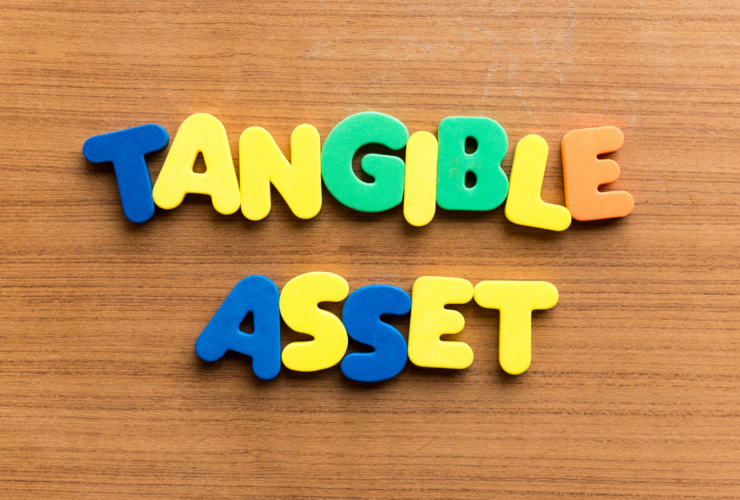The Guide to Alternative Investing
When it comes to the world of investing, you’re probably most familiar with traditional investments like stocks, bonds, or your 401k account. But there’s another way investors can diversify their portfolio without needing to bet on the volatility of the market.
That’s where alternative investing comes into play. Alternative investments go outside of the traditional investing routes and have the ability to diversify your portfolio, while helping you earn high returns. Let’s take a look at the different types of alternative investments and the advantages and disadvantages that come with this type of investment.
What are alternative investments?
An alternative investment is a financial asset that doesn’t fall into one of the conventional investment categories like stocks, bonds, or cash. Some examples include private equity and venture capital, hedge funds, real estate, natural resources, and tangible assets.
Alternative investments are diverse and vary greatly in accessibility and structure. While each investment has its own unique make up, every alternative investment has a few things in common:
- Each investment is unregulated by the US Securities and Exchange Commission (SEC) and is not available on the public market
- They can’t be easily sold or converted into cash
- They don’t necessarily directly correlate with the market as it fluctuates like stocks do
Due to the lack of regulation with these types of investments, it’s vital that potential investors do their due diligence before investing.
Who can buy alternative investments?
A high percentage of alternative investment assets are held by high net worth individuals and entities due to lack of regulation and the complex nature of these investments. Some alternative investments are only available to accredited investors with a net worth of over $1 million or an annual income of at least $200,000.
Traditionally, alternative investments could require millions of dollars to get involved. That’s something we’re trying to get rid of here at Hedgehog Investments. By lowering the barrier for entry, we strive to bring the returns of the wealthy to the every-day man and woman.
Types of alternative investments
Private equity funds
Private equity funds are pooled investment vehicles in which investors and funds directly invest in public and private companies or engage in buyouts of those companies. The managers of these funds take an active role in managing and mentoring their portfolio companies. They provide education and knowledge to their companies, along with financial capital.
Private equity has advantages for both the investor and the startup or portfolio company. With private equity, companies have access to liquidity without needing to go through traditional financial mechanisms like banks who charge high interest rates on loans.
Private equity funds see a profit when their portfolio company goes public or is sold off to another company. Due to the nature of this type of investment, investors should expect long holding periods on their capital.
Hedge funds
Hedge funds are private, actively managed investment pools. They are similar to mutual funds or exchange traded funds in that they use money from investors to buy securities of other types of investments, but hedge funds are not quite as limited as their counterparts.
Hedge funds take on riskier investments that range from startups to publicly traded securities. The barrier to entry is also quite high with the minimum investment for hedge funds ranging from $100,000 to $2 million.
Real estate
Real estate is a type of asset class that has something for everyone. If you own a home, you’ve already invested in this asset class! There are hundreds of ways to invest in real estate including single family home flips and renovations, multifamily investing like apartment buildings, domestic or foreign active farm properties, buying and selling notes on property, or buying tax liens on properties. The list could go on and on…
When it comes to investing in real estate, it’s important to remember two things.
- Like any investment, it pays to get educated as part of the due diligence process in investing.
- Real estate is cyclical. Similar to the stock market, real estate goes up and down drastically (and sometimes, without warning). Since the investment involves a tangible asset, there will always be some value in holding real estate assets, and over time that value will continue to rise.

Tangible assets
A tangible investment is something that you can physically touch, unlike stocks or bonds. Precious stones and fine art are examples of tangible assets. Colored diamonds and other precious stones, collectable watches, and fine art are all held as investments, and can be a great way to diversify an investor’s portfolio.
Precious metals are cyclical, much like real estate or the stock market, but on their own cycle. With various ways to invest, from bullion or bullion coins to collectible or more “rare” coins, there are ways for even the novice precious metals investor to find an appropriate avenue.
Collectables are also a type of tangible asset investment. That box of baseball cards you have in the basement? That’s a type of alternative investment!
Almost any object can be considered a “collectable” in the right circumstances, from old comic books, to action figures to jewelry. Even items that we would never consider as “valuables” can have worth, such as old record albums, old cars, or even cork screw removers.
When it comes to tangible assets, education about the item at stake is crucial. Sometimes items that seem to have great value, in actuality do not, and others are just the reverse. So if this asset class appeals to a person, digging in and getting educated about what really holds value is essential.
Natural resources
Natural resources include commodities, farmland, and forests. Though technically these can be considered a real estate holding as there are no structures involved, the buying and holding of land real estate is different from other real estate holdings. Whether the land is actually bare and holds value in its use (such as agricultural land, timber, or recreation such as hunting) makes a significant difference in the cost of holding land for a longer period.
Paths of progress or development are important, as the intent here is to hold the land until it has appreciated significantly, which may take a few years—maybe even decades.
The advantages of alternative investments
Alternative investments can be an excellent way to diversify your portfolio and invest in assets that you’re passionate about. There are several advantages to alternative investing including:
- Lower volatility: Since alternative investments are a limited part of the market, the impact of market volatility is typically lower.
- Low correlation with standard asset classes: Alternative investments don’t necessarily follow the swings of the stock market. So when the stock market is underperforming or in trouble, assets like natural resources and collectables could be performing well.
- Broad portfolio diversification: Because alternative investments don’t correlate with the stock market, they can be used to add diversification to your portfolio. They also give people the opportunity to invest in areas they are passionate about—like collectable baseball cards!
- Potential for higher returns: By utilizing creative practices, these types of investments can see higher returns than their conventional competitors.
The disadvantages of alternative investments
While there are many advantages that come with investing in alternative asset classes, there are some disadvantages that potential investors should consider:
- Lack of regulation and transparency: As we stated at the beginning, alternative investments are not registered or regulated with the SEC. Because they are not regulated by the SEC, they have lower transparency than traditional investments.
- Low liquidity: Many alternative investments are not publicly traded, so it can be difficult to buy or sell these investments.
- Difficult to value: Like with collectables or jewelry, value is subjective and can be harder to appraise.
- Potential for higher risk: Generally higher returns result in higher risk.
- High minimum investments: Traditionally alternative investments require a high minimum investment, making them suitable to only the wealthiest of investors.
Don’t forget to do your research
At the end of the day, alternative investments aren’t for everyone. If you’re interested in diversifying your portfolio this way, there’s one step you can’t skip: due diligence. Alternative investments can be tricky, so do your research before you invest and work with someone you trust and can rely on. You shouldn’t feel pressured into investing in something you aren’t sure of.
A smarter way to invest with Hedgehog
To put it simply, investing is risky—but we’re here to help make it a little easier. Our goal at Hedgehog is to help all of our clients build wealth through our proprietary investment model. With 12-20% returns that compound year over year, we offer high returns with lower risk.
Interested to see how it all works? Get in touch with us today to learn more.
Disclaimer:
This material is intended for informational purposes only and should not be construed as legal or tax advice. Information here is not intended to replace the advice of your investment advisor or financial advisor. This information is not an offer or a solicitation to buy or sell securities. This information may have been compiled from third-party sources and is believed to be reliable. All investing involves risk, including the loss of principal.




